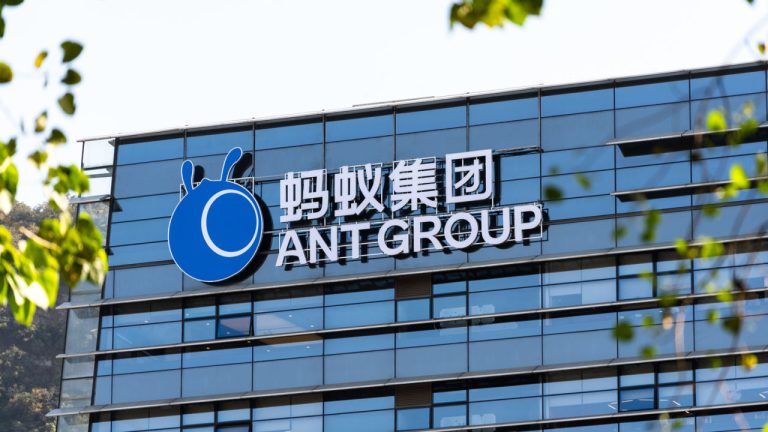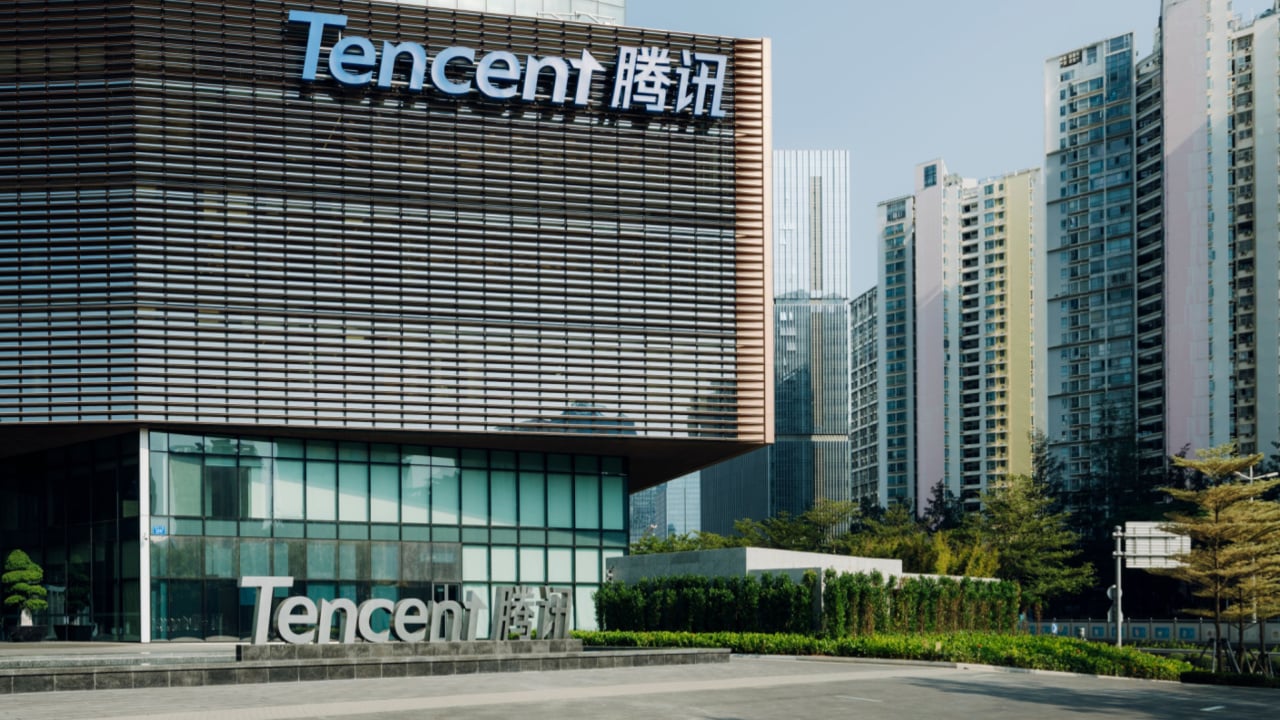 Chinese billionaire Jack Ma recently agreed to give up control of Ant Group as part of changes to the fintech’s corporate structure, which will supposedly not have an impact on “the economic interests of any shareholders of Ant Group and their beneficiaries.” Once the process is complete, no single shareholder will have control over Ant […]
Chinese billionaire Jack Ma recently agreed to give up control of Ant Group as part of changes to the fintech’s corporate structure, which will supposedly not have an impact on “the economic interests of any shareholders of Ant Group and their beneficiaries.” Once the process is complete, no single shareholder will have control over Ant […]
In a statement, the crypto exchange said that users' funds are safe and transactions are still being processed.
Users of the crypto exchange Gate.io are facing slow deposits and withdrawals on transactions due to a node maintenance from a third-party cloud provider, according to an announcement on Dec. 18.
Gate.io said the transactions are still being processed, and claimed the funds of users are safe. The company stated:
"At this moment, we are monitoring the network connection status of our cloud service providers and will expedite the deposits and withdrawals as soon as the network connection is restored."
It is unclear if the delay in transactions is related to OKX's outage, which was caused by a hardware failure at a Hong Kong data center of primary infrastructure provider Alibaba Cloud. As reported by Cointelegraph, Alibaba's Cloud server went offline on Dec. 17 and failed to recover for over fifteen hours, during which users could not withdraw and deposit funds.
While OKX trading services have resumed several hours later, while Gate.io users on Twitter are still experiencing problems with transactions.
Alibaba's Cloud services were interrupted a few days after the company announced it was developing its first Blockchain Node Service. Set for launch in the first quarter of 2023, the service aims to make it easier for organizations to build blockchain applications.
According to Alibaba, the new Platform as a Service (PaaS) solution will aid developers by reducing operational and maintenance time. The company claimed the infrastructure will allow node-hosting to actively monitor nodes and automatically switch in case of an outage. "As it doesn’t require hands-on monitoring or problem mitigation, developers are free to concentrate on product development and thus speed up the pace of the product roll-out process.", Alibaba's said.
Alibaba Cloud is the digital technology backbone of Alibaba Group. Earlier this month, Avalanche blockchain partnered with Alibaba Cloud's Node-as-a-Service initiative, Cointelegraph reported.

Alibaba Cloud Hong Kong IDC Zone C server went offline on Saturday at roughly 10 PM ET and failed to recover for over 7 hours at the time of reporting.
Crypto exchange OKX witnessed service disruptions after primary infrastructure provider Alibaba Cloud announced a hardware failure in Alibaba Cloud’s Hong Kong data center.
Alibaba Cloud Hong Kong IDC Zone C server went offline on Saturday at roughly 10 PM ET and failed to recover for over 7 hours at the time of reporting. On-chain data further confirms that OKX processed no transactions during this timeline.
Alibaba Cloud’s website shows that the Hong Kong (China) server hosts three availability zones, which have been operational since 2014. The cloud provider confirmed the outage through an official announcement, as shown below.

While announcing the service disruption, OKX revealed that it is working together with Alibaba Cloud to resolve the issues. “Funds are safe. Sorry for any inconvenience caused,” the announcement added.
There is currently an intermittent connection error with our cloud provider which is affecting the user experience. Our dev team is resolving it with them. Funds are safe. Sorry for any inconvenience caused.
— OKX (@okx) December 18, 2022
In the meantime, users cannot withdraw and deposit funds, while some claim that their account balances have glitched to show $0 in their funds. Many investors have confirmed that their trades got stuck midway and have shown concerns about possible losses.
OKX has not yet to responded to Cointelegraph’s request for comment.
Related: OKX releases proof-of-reserves page, along with instructions on how to self-audit its reserves
In early December, Avalanche blockchain entered into a partnership to power Alibaba Cloud’s Node-as-a-Service initiatives.
APAC's largest cloud service provider, Alibaba Cloud, has expanded support for #Avalanche!
— Avalanche (@avalancheavax) December 2, 2022
This integration enables developers to easily launch their own validator nodes, with access to @alibaba_cloud's plug-and-play infrastructure and suite of products.https://t.co/MlXTOYuJgG
As Cointelegraph reported, the partnership is aimed at developing new tools for launching validator nodes on Avalanche's public blockchain platform in Asia. The integration will allow Avalanche developers to use Alibaba Cloud’s plug-and-play infrastructure as a service to launch new validators.
During the announcement, it was revealed that Avalanche hosts over 1,200 validators and processes roughly 2 million daily transactions.

Expected to launch in early 2023, Kenanga’s crypto-friendly super app will feature digital investment management, e-wallet, FX, stock trading and other services.
Malaysia continues accelerating its pace of cryptocurrency adoption as one of the major local banks is moving into cryptocurrency trading as part of its default banking offerings.
Kenanga Investment Bank Berhad, one of the largest private investment banks with more than 500,000 customers, has partnered with China’s tech giant Ant Group to launch a crypto-friendly wallet and trading app.
According to an announcement on Wednesday, Kenanga has signed a memorandum of understanding with Ant to jointly develop Malaysia’s wealth application called categorized as a super app. Under the terms of the agreement, Ant’s digital technology unit will provide Kenanga with mPaaS, a mobile development platform originating from AliPay App.
“Adopted by many businesses to build new apps and optimize the performance of existing apps, our financial-grade mPaaS mobile development platform is well-positioned to support Kenanga in integrating a wide range of products and services into its SuperApp,” At’s digital tech president Geoff Jiang noted.
The SuperApp is designed to revolutionize the way of managing wealth in Malaysia by integrating diverse financial services — like stock trading, digital investment management, crypto trading, digital wallet, foreign currency exchange and others — into a single platform. Kenanga reportedly plans to launch the app in early 2023.
“We look forward to not only unifying a broad spectrum of financial offerings under one roof, but more importantly, to make wealth creation more accessible by democratizing financial services for the millions of Malaysians,” Kenanga Group managing director Datuk Chay Wai Leong said.
He also mentioned that Kenanga started experimenting with digital financial services five years ago, and the new application would bring the company’s growth to the next level. As previously reported, Kenanga has been an active player in the crypto industry, investing in local crypto exchange operators like Tokenize Technology in 2021.
Related: Malaysian regulators add Huobi to investor alert list
Kenanga is also a known partner of the Japanese crypto-friendly retail firm Rakuten, providing Malaysia’s local online stock trading platform Rakuten Trade.
The cryptocurrency industry has seen some action in Malaysia in recent months, with local officials reportedly calling the government to legalize crypto in March 2022. While crypto investment and trading have been legal in Malaysia, the government opposed the idea of adopting crypto as legal tender.
 China’s Tencent Holdings plans to shut down its non-fungible token (NFT) platform Huanhe only a year after its launch. The social media giant has reportedly made the decision because of the strict ban on the resale of NFTs imposed by the authorities in Beijing. Huanhe to Close Down a Year After Launch as China Curbs […]
China’s Tencent Holdings plans to shut down its non-fungible token (NFT) platform Huanhe only a year after its launch. The social media giant has reportedly made the decision because of the strict ban on the resale of NFTs imposed by the authorities in Beijing. Huanhe to Close Down a Year After Launch as China Curbs […]
NFTs are still a gray area in China where unlike cryptocurrencies, there’s no official ban on its use, but the authorities have warned investors against the risks from time to time.
The popularity of nonfungible tokens is on the rise as recent data shows that the number of digital collectible platforms in China has grown to over 500, a 5X increase from February 2022, when the total number of NFT platforms was just over 100.
According to a report published by a local Chinese daily, the sharp rise in the number of NFT platforms comes amid the growing hype and popularity of the digital collectibles in the country. Major tech giants including Tencent and Alibaba have shown interest in the nascent space and have filed multiple trademark patents.
The rise in interest in digital collectibles in China comes despite several warnings from the local authorities from time to time. The government agencies believe the Chinese NFT market is filled with speculations with a focus on the secondary market that poses inherent risks for investors.
NFTs also became a way for people to express themselves digitally during the strict covid-19 induced lockedowns in China. Shanghai residents listed hundreds of NFTs on Opensea in May at the peak of the government lockdown.
Due to a lack of regulatory supervision, individuals and businesses continues to engage with digital collectibles but with a cautionary approach to avoid any direct conflict with authorities. Recently, Alibaba launched a new NFT solution and then promptly deleted all mentions of it online.
Alibaba-affiliated companies such as Ant Group and Tencent Holdings have moved to avoid any potential regulatory pushback in the past by branding their listed NFTs as “digital collectibles.” They are also offered on private blockchains and are traded/purchased using Chinese fiat currency.
Related: China-based regulatory and trade associations target NFTs in latest risk notice
Similarly, several internet giants and leading social media platforms in China are conflicted over regulatory clarity on NFTs and decided to remove several marketplaces from their platforms fearing a government crackdown.
The strict stance of the Beijing government towards the crypto market is well known, however, the ban on decentralized tech has proved futile. The crypto mining ban which once led to a 50% decline in BTC network hash rate couldn’t eclipse the mining industry in the country completely and currently, China is back in the second spot after the United States in terms of hash power contribution to the Bitcoin (BTC) network.

The firm’s NFT marketplace solution included “web hosting, digital marketing & content delivery” infrastructure, but is no longer listed on its website despite still showing up in Google search results.
The cloud business unit of Chinese marketplace giant Alibaba Group Holdings launched a new NFT solution and then promptly deleted all mention of it online.
According to a now-deleted Twitter post announcing the launch on June 8, the firm’s NFT marketplace solution included “web hosting, digital marketing & content delivery” infrastructure, but is no longer listed on its website despite.
There are also no press releases or announcements related to the NFT solution on Alibaba’s website anymore, and while the solution’s webpage link still shows up in Google search results, it now redirects to Alibaba Cloud’s solution index page.

The reason behind the deleted social media posts and delisting on its website are unclear at this stage. While crypto trading and mining are banned in China, there is a regulatory gray area with NFTs in the country — officials frown upon it but are yet to issue an outright ban.
The shortly lived NFT focused solution was set to offer Alibaba Cloud Elastic Compute Service (ECS) and Auto Scaling for marketplace growth, an SMS-integrated digital marketing service for sellers to connect with buyers, and a Global Delivery Service – Alibaba Cloud Content Delivery Network (CDN) and Server Load Balancer (SLB) capable of supporting 100,000 queries per second.
The South China Morning Post (SCMP) — which is owned by Alibaba — noted that the solution was intended for customers outside of mainland China, with a representative telling the publication that the solution was for Alibaba Cloud’s international website only.
The SCMP also stated that Alibaba affiliated companies such as Ant Group and Tencent Holdings have moved to avoid any potential regulatory pushback in the past by branding their listed NFTs as “digital collectibles.” They are also offered on private blockchains and are traded/purchased using Chinese fiat currency.
Alibaba Cloud does still have a new Metaverse-focused solution listed on its website that offers remote rendering, data analytics and AI, along with Blockchain as a Service (BaaS) as part of the private Alibaba Cloud Blockchain.
Under the Metaverse solution, the company does note that NFTs can be integrated into a Metaverse built off of Alibaba’s services, but the firm does not provide any of that specific infrastructure.
Related: Half of Asia's affluent investors have crypto in their portfolio: Report
In April, the China Banking Association, the China Internet Finance Association and the Securities Association of China issued a joint statement warning the public away from investing in NFTs due to “hidden risks” of the assets. They also noted that businesses should not consider NFTs like other financial products such as securities, precious metals, and other financial products.
Cointelegraph also reported in March that Chinese social media giants such as WeChat and WhaleTalk updated their policies to restrict or remove NFT platforms from their networks, citing a lack of regulatory clarity and fearing a government crackdown. However, Beijing is still yet to issue a blanket ban on the sector.

WeChat removed several accounts for digital collectible platforms for violating the policy of illegal trade, while Ant Group and Tencent-owned NFT platforms updated their user agreements.
China's leading social media platforms and internet giants have updated their policy to restrict or remove nonfungible token (NFT) platforms, citing a lack of regulatory clarity and fearing government crackdown.
Chinese social media giant WeChat reportedly removed several digital collectible platform accounts for violations of the rules. Digital collection platform Xihu No.1, one of the hyped NFT projects in the market, was among the removed platforms. Another platform called Dongyiyuandian revealed that its official app has been banned, reported a local daily.
WhaleTalk, a digital collectible platform launched by tech giant Ant group, also updated its policy to increase the penalty for using an over-the-counter (OTC) desk for trading NFTs. It is important to note that even though NFTs are not necessarily banned, any form of speculative trading associated with the digital collectible derived tokens is still prohibited. An excerpt from the Google-translated report read:
“Under the background that the compliance of digital collections is not clear, many platforms have begun to actively crackdown on violations to prevent further fermentation of related behaviors.”
The rise in the number of illegal transactions and bot purchases associated with the NFT platforms has prompted several tech giants to take precautionary measures. During the blanket ban on crypto announced in September 2021, any firms found aiding crypto transactions or foreign crypto firms were held accountable. Thus, these firms' recent actions and changes in user agreement policies seem to be done to avoid government crackdown.
Related: Chinese companies embark on a metaverse trademark race
While cryptocurrencies are strictly prohibited in mainland China, the Beijing government had shown no intention of banning NFTs. This was one of the key reasons for the likes of Tencent and Alibaba to file several new NFT patents over the past year. However, the rising popularity of digital collectibles in China has also made it prone to price speculations and frauds.
 China’s social media giant, Wechat has said it will support the digital yuan in a move that is expected to increase the of Chinese residents that use the central bank’s digital currency (CBDC). Wechat’s support of the digital yuan potentially avails the digital currency to the social media’s 800 million active users. New App Provides […]
China’s social media giant, Wechat has said it will support the digital yuan in a move that is expected to increase the of Chinese residents that use the central bank’s digital currency (CBDC). Wechat’s support of the digital yuan potentially avails the digital currency to the social media’s 800 million active users. New App Provides […]
JD.com implements its own blockchain to issue free NFTs to attendees of its annual JD Discovery conference.
Chinese online retail giant JD.com is diving into the nonfungible tokens, or NFTs, industry by introducing a special NFT series for its annual JD Discovery conference.
Using its proprietary blockchain platform, JD.com will be distributing commemorative NFT certificates to attendees of the JDD 2021 event in Beijing, the Chinese new agency Sina Finance reported Oct. 20.
JD.com will specifically issue one NFT for free to anyone who signs up for the JDD 2021 conference between Oct. 18 and Nov. 22 through WeChat mini program on the event’s official website.
According to the report, the NFT series features a set of seven NFT models, with each of them containing different images used to identify different forums of the JDD event.
Users who sign up to participate will be also able to get more NFTs by inviting friends to sign up. “Each time one person is successfully invited to sign up, one NFT voucher will be added until all seven NFT models are collected,” the report reads.
The JDD 2021 conference will kick off at the China International Exhibition Center on Nov. 22, featuring panels on artificial intelligence and tech innovation. Launched in 2017, the JDD conference has emerged as a major technology event in China, covering topics like smart cities, the digital financial industry, supply chain innovation and others.
Related: Chinese Communist Party warns of NFT hype bubble
The news comes after some major Chinese companies like retail giant Alibaba and technology conglomerate Tencent announced their own NFT projects as well. Alibaba announced the launch of an NFT marketplace in mid-August, aiming to allow trademark holders to sell tokenized licenses to their intellectual property. Tencent previously said it was planning to release its own NFT trading platform.